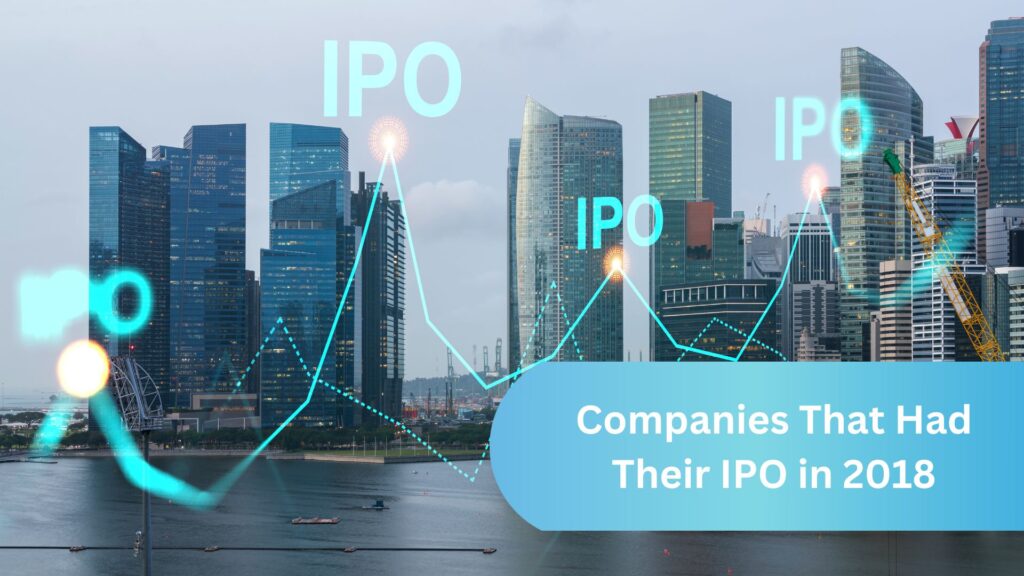2018 marked a turning point for the U.S. IPO market. After several quiet years following the 2016 slowdown, investor confidence returned, and dozens of companies — from Silicon Valley tech startups to well-established consumer brands — decided to go public.
Check out our directory to see or add your honest review about some of these companies.
Fueled by strong market conditions and a bullish economy, 2018 became one of the busiest IPO years of the decade. It saw major debuts across technology, biotech, retail, and cloud software, with companies seeking capital to expand and investors eager to grab early shares of promising firms.
What made 2018 stand out was its diversity of offerings. High-growth tech names like Dropbox, DocuSign, and Zscaler joined the market alongside consumer-facing brands such as BJ’s Wholesale Club and Eventbrite. Even biotech firms like Moderna entered the public arena — a move that would later prove monumental for global healthcare.
But not every story was a success. While some stocks surged post-IPO and evolved into industry leaders, others struggled with volatile markets, tough competition, or overvaluation!!!
In this article, we’ll break down the top companies that had their IPOs in 2018, how they’ve performed since, and what investors and professionals can learn from one of the most dynamic years in the modern IPO landscape.
🚀 Notable Companies That IPO’d in 2018
| Company | Ticker | IPO Date | Industry | IPO Price / Direct Listing Notes |
|---|---|---|---|---|
| Moderna (MRNA) | MRNA | December 6, 2018 | Biotech / Pharma | $23 per share |
| Dropbox (DBX) | DBX | March 23, 2018 | Cloud Storage / Tech | ~$29 per share |
| DocuSign (DOCU) | DOCU | April 27, 2018 | SaaS / Digital Signatures | $38 per share |
| Spotify (SPOT) | SPOT | April 3, 2018 (direct listing) | Streaming / Media | Not a traditional IPO, but public debut via direct listing |
| BJ’s Wholesale Club (BJ) | BJ | June 28, 2018 | Retail / Wholesale | $17 per share |
| Americold Realty Trust (COLD) | COLD | January 2018 | Real Estate / REIT | $16 per share |
| ADT Inc (ADT) | ADT | January 2018 | Security / Home Automation | $14 per share |
| Zscaler (ZS) | ZS | March 16, 2018 | Cybersecurity / Cloud Security | IPO closed well above offering price |
| Avalara (AVLR) | AVLR | June 2018 | Business Services / Tax Compliance | Strong initial interest |
| Eventbrite (EB) | EB | September 2018 | Online Ticketing / Events | Successful public debut |
| Elastic (ESTC) | ESTC | October 2018 | Cloud Search / SaaS | High growth in the cloud sector |
| Farfetch (FTCH) | FTCH | September 2018 | Fashion / E-Commerce | IPOed with high expectations |
How Well These 2018 IPOs Have Performed
The performance of 2018 IPOs has been a mixed bag. Some companies saw rapid growth and became market leaders, while others faced volatility, competition, or shifting investor sentiment. Here’s a closer look at a few notable examples:
-
Moderna (MRNA) – Moderna’s IPO was modest at first, but the company saw massive growth with its development of the COVID-19 vaccine. Early investors who held shares experienced significant returns, highlighting how biotech firms can achieve enormous gains when their products meet critical demand.
-
Pinduoduo (PDD) – The Chinese e-commerce platform debuted on the Nasdaq in 2018 and quickly became one of the top-performing IPOs of that year. Its rapid user growth and innovative social-shopping model drew investor enthusiasm despite geopolitical concerns about Chinese tech companies.
-
Dropbox (DBX) – Dropbox has had a more turbulent post-IPO journey. While its brand and cloud storage solutions remain strong, increasing competition from Microsoft, Google, and other cloud providers has impacted its stock price at times.
-
Zscaler (ZS) – As demand for cybersecurity tools surged, Zscaler’s IPO attracted significant attention. Its cloud-based security model positioned the company for sustained growth, though market fluctuations have occasionally created volatility.
-
Eventbrite (EB) – Eventbrite’s IPO gained initial excitement, but the company faced challenges from fluctuating event attendance and competition from other ticketing platforms. Its stock illustrates the impact of market cycles on event-driven businesses.
-
Elastic (ESTC) – The enterprise search and data analytics company has grown steadily post-IPO, benefiting from increasing demand for cloud-based data management tools.
-
Spotify (SPOT) – Unlike a traditional IPO, Spotify opted for a direct listing, allowing existing shareholders to sell shares without raising new capital. This approach has given investors flexibility while avoiding dilution, and Spotify remains a top example of an alternative path to public markets
Key Takeaways
-
Long-Term Winners Exist – Investors in companies like Moderna, Elastic, or DocuSign likely benefited from sustained growth.
-
Risk and Volatility Are Real – Not all IPOs maintain momentum; careful research and diversification are essential.
-
Alternative Routes – Direct listings, like Spotify’s, provide different advantages compared to traditional IPOs and may influence how companies approach public markets in the future.
Tracking the performance of 2018 IPOs provides a window into market trends, the impact of industry innovation, and lessons for both investors and businesses planning to go public today.


